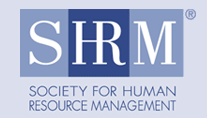Artificial Authors: The Latest Developments in AI-Generated Creative Works and Their Impact on Workplaces
Responsible AI
This presentation delves into the rapidly evolving world of AI-generated creative works and their impact on workplace dynamics. It primarily explores the intersection of AI and Intellectual Property (IP) laws, focusing on the legal and ethical implications of using generative AI. The lecture aims to provide attendees with a comprehensive understanding of generative AI technology, its practical applications in the IP field, and its impact on workplaces.
Learning Objectives and Key Takeaways:
- Understanding Generative AI: Gain a technical primer on different tools of generative and creative AI.
- Understanding IP Challenges: Discuss IP issues related to the deployment of generative AI.
- Understanding other legal challenges when using AI at workplaces, such as privacy and equality.
- The use of AI Tools in Workplaces: Understand the utilization of AI tools by employees, including their significant benefits and potential risks within the workplace.
- Formulating Workplace Policies: Delve into the development of workplace policies to strike a balance between the advantages and concerns of using AI tools.
- Awareness for Employees: Discuss what employees should be aware of regarding the use of generative AI tools in their creative work, including legal rights and limitations.
- This presentation aims to offer valuable insights for HR managers, policy makers, and anyone interested in the ethical and legal dimensions of AI in the workplace.
Shlomit Yanisky Ravid

Professor Shlomit Yanisky-Ravid, PhD, an authority in IP and AI, specializing in the challenges artificial intelligence (AI) and emerging technologies pose to IP laws, participating in leading cases in the U.S. on AI and IP and proposing solutions for interpreting IP laws in the context of AI.
Within the Copyright Association, Judge Katherine Forrest lauds her as the foremost thinker on AI and copyright.
She has been a teaching at Fordham Law School since 2012, leading the IP-AI & Blockchain Projects at Fordham Law CLIP, until 2021; a research fellow at Yale Law School’s Information Society Project, since 2011; a board member of Penn State Dickinson Law IP & Innovation; and a at the board of Global IP Alliance, and the founder and the head of Graduate Law School on “Commercial Law, High-Tech, and Technology” at Ono Academic Law School in Israel; and the founder the Shalom Comparative Research Institute, Eliyahu Law and Tech International Center.
She has won awards and scholarships for publications and research on the legal impact of AI and blockchain, including the visionary article “Generating Rembrandt” recognized by Michigan State University.
Honored for her numerous publications on AI and IP, her influence extends to top academic institutions and international bodies like WIPO.
She is part of the project for recognition of the AI system "DABUS" as an inventor in the U.S. Copyright office and the U.S. patent offices led by Prof. Ryan Abbott, and authored the U.S. Supreme Court Brief, supported by distinguished professors, including Lawrence Lessig, Harvard Law.
She recently authored the Amicus Brief for the appeal against the DC court's decision, which seeks to invalidate the copyright of AI-generated artwork. The proceedings are ongoing.
Find Sessions by Day
